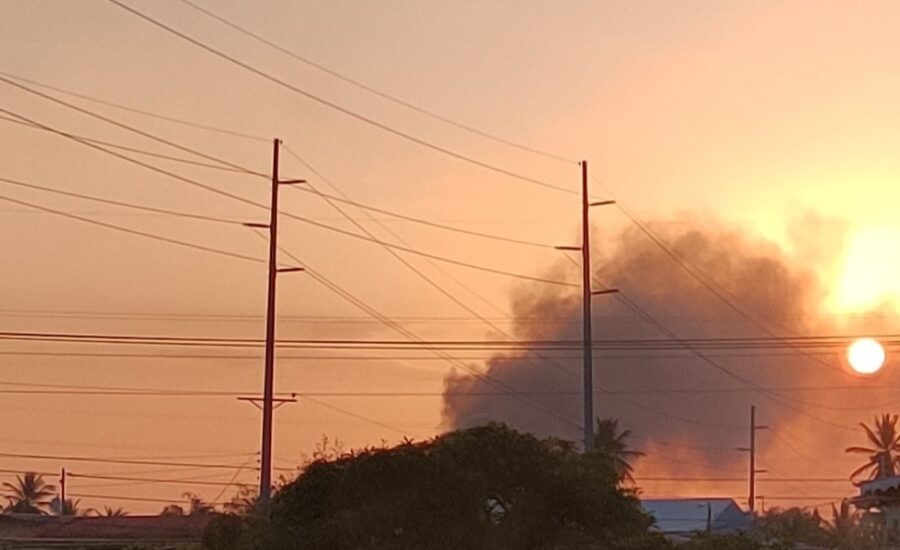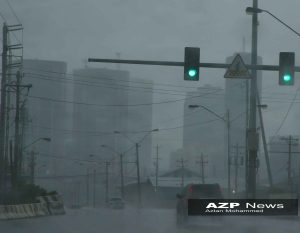
I LAMENT the deafening silence about the myriad of bushfires that have, of late, become the norm during the dry season in Trinidad.
Our dry season is supposed to be from January to June every year, but from personal observation, it appears to have shifted from late February to mid-May.
The dry season has become even more intense with the impact of climate change.
The State appears to have self-implemented a new policy, wherein it does not deem important the need to cut the bushes next to our highways and major roadways. Instead, it is left for the dry season where indiscriminate bushfires are relied on to clear the area.
What then happens is that drivers on our normally traffic-clogged main roads and highways are subjected to further impactful traffic delays, caused by the lack of road visibility.
Then there are the environmental concerns that no one seems to be talking about.
Climate change has brought about more Sahara dust for our citizens to contend with than ever before. The section of the populace negatively affected by this dust is growing. Toxic fumes and heavy smoke from the uncontrolled bushfires are adding to the significant concentrations of Sahara dust, exacerbating the pollution in the air and significantly reducing air quality.
Inhaling the polluted air can cause harm to human health. This can be temporary to life-threatening.
How many readers experience sinus attacks after inhaling smoke-polluted air? Sinus issues can manifest in many ways, including coughing, congestion, headaches, fatigue, sneezing, irritated eyes, and wheezing. How many of us had to leave the office early, take a day off work, of just wasn’t able to complete our daily tasks because of the effect on our health from breathing in this polluted air? I would hazard a guess a lot of you are saying yes!

There is a disconcerting problem when the bushfires are permitted to blaze undisturbed at night. For these hot March nights, air conditioning is usually a must. If we are asleep while the air conditioning is running, it pulls in the smoke-polluted air. We then inhale it while we sleep, even though we may be kilometres away from the source of the fire. When we awake not feeling well, it’s not rocket science why we may be feeling that way.
It is also particularly disturbing knowing that bushfires in certain areas, such the Caroni plains, formerly rice and sugar lands, are being allowed to burn indiscriminately without effort at extinguishing or controlling them. There are entire ecosystems in those plains.
Birds and other wild animals live and feed in those bushes. I hypothesize, for instance, those beautiful birds called dickcissels feed on the rice that keeps growing there, even though the lands are no longer under cultivation. These are the birds that fly in groups over the Caroni plains, sometimes forming shapes called a “murmuration”.
I have read reports that the fire service is starved of resources. But this is unacceptable and inexcusable. We must demand more and better. The wild bushfires need to be controlled, for the sake of our health and to keep the precious environment and the ecosystems we have intact.
Be safe T&T.
Copyright © 2023 Neela Ramsundar, LL.B (HONS), LEC is a Civil Litigation Attorney at Law & Certified Mediator.
Disclaimer: The contents of this article are for general informational purposes only and/or contain the opinions and/or thoughts of the writer only. It does not provide legal advice and does not create an attorney-client relationship with any reader. For legal advice on your specific situation, please contact an Attorney-at-Law of your choosing directly. Liability for any loss or damage of any kind whatsoever allegedly incurred as a consequence of relying on content in this article is thus hereby excluded to the fullest extent permitted by law.
![]()












